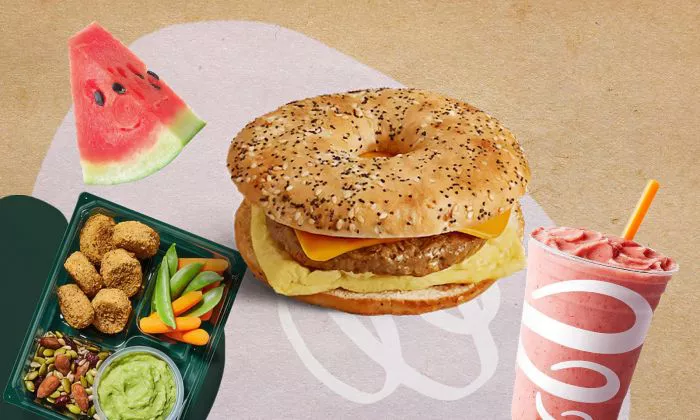Food trucks have become a popular and lucrative business opportunity in the culinary industry, offering entrepreneurs the flexibility to showcase their culinary skills and reach customers in various locations. While profitability can vary based on factors such as menu offerings, location, and marketing strategies, certain types of food trucks tend to generate higher revenues than others. In this comprehensive analysis, we’ll explore the types of food trucks that typically make the most money, provide specific numbers, and offer recommendations for aspiring food truck entrepreneurs.
High-Profit Food Truck Concepts
Gourmet Burgers: Gourmet burger food trucks have gained popularity for offering high-quality, customizable burgers with premium ingredients and unique flavor combinations. These trucks can command higher prices for specialty burgers, gourmet toppings, and artisanal condiments. Average revenue estimates for gourmet burger food trucks range from $200,000 to $500,000 annually, depending on factors such as location and menu offerings.
Tacos and Mexican Street Food: Taco trucks and Mexican street food vendors capitalize on the widespread popularity of tacos, burritos, and other Mexican-inspired dishes. These trucks often offer a variety of fillings, sauces, and toppings to appeal to diverse tastes. With average sales ranging from $100,000 to $300,000 per year, taco trucks can generate substantial revenue, particularly in areas with a high demand for Mexican cuisine.
Asian Fusion: Asian fusion food trucks combine traditional Asian flavors with modern culinary techniques to create innovative and flavorful dishes. From Korean barbecue tacos to Vietnamese banh mi sandwiches, these trucks offer a unique culinary experience that resonates with adventurous eaters. Average annual revenues for Asian fusion food trucks typically range from $150,000 to $400,000, depending on menu creativity and market demand.
Barbecue and Grilled Meats: Barbecue food trucks specialize in slow-cooked meats, grilled sandwiches, and hearty comfort food dishes that appeal to meat lovers. With mouthwatering offerings such as pulled pork sandwiches, smoked ribs, and brisket platters, barbecue trucks can attract a loyal customer base and generate significant sales. Average revenue estimates for barbecue food trucks range from $150,000 to $400,000 per year, depending on portion sizes and pricing.
Healthy and Plant-Based Options: With growing consumer interest in health-conscious eating, food trucks offering healthy and plant-based options have gained traction in the market. These trucks focus on fresh, locally sourced ingredients, plant-based proteins, and nutritious menu items such as salads, grain bowls, and vegan burgers. Average annual revenues for healthy food trucks typically range from $100,000 to $300,000, with potential for growth in health-conscious communities and urban areas.
Maximizing Profitability
Identify a Niche: Conduct market research to identify underserved niches or gaps in the local food truck market. Choose a concept that aligns with your culinary expertise, passion, and target demographic preferences.
Offer Unique and High-Quality Menu Items: Differentiate your food truck by offering unique, high-quality menu items that stand out from competitors. Experiment with flavors, ingredients, and presentation to create memorable dining experiences for customers.
Focus on Branding and Marketing: Invest in branding and marketing efforts to build awareness and attract customers to your food truck. Utilize social media, food festivals, and community events to promote your truck and engage with potential customers.
Optimize Location Selection: Choose strategic locations with high foot traffic, such as busy downtown areas, office parks, tourist destinations, and festivals. Monitor customer traffic patterns and adjust your schedule and locations based on demand.
Provide Excellent Customer Service: Deliver exceptional customer service to build loyalty and encourage repeat business. Train your staff to provide friendly, efficient service and prioritize customer satisfaction.
Streamline Operations and Control Costs: Implement efficient operational processes, inventory management systems, and cost control measures to maximize profitability. Minimize waste, optimize portion sizes, and negotiate favorable supplier agreements to reduce expenses.
Utilize Technology: Leverage technology solutions such as mobile ordering apps, point-of-sale systems, and food truck locator websites to streamline operations, enhance customer convenience, and improve efficiency.
Conclusion
While profitability in the food truck industry depends on various factors, certain types of food trucks tend to generate higher revenues than others. Gourmet burgers, tacos and Mexican street food, Asian fusion, barbecue, and healthy options are among the most profitable food truck concepts, offering entrepreneurs the opportunity to capitalize on consumer preferences and culinary trends. By identifying a niche, offering unique menu items, focusing on branding and marketing, optimizing location selection, providing excellent customer service, and controlling costs, food truck entrepreneurs can maximize profitability and build a successful and rewarding business in the competitive mobile food industry.

